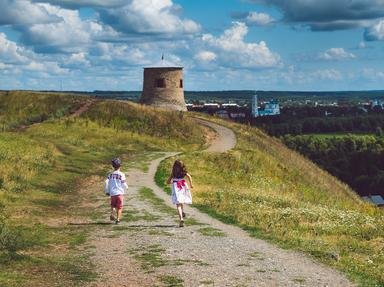
Henry's Medieval Match 5 Trivia Quiz
Henry here! Once again the pages are going to see Sir William for their history lesson about people from all over the world. He always tells an interesting story! Want to come along? See if you can decipher the clues to match to the correct person!
A matching quiz
by ponycargirl.
Estimated time: 3 mins.